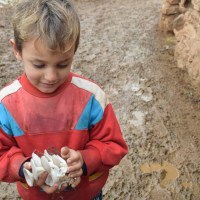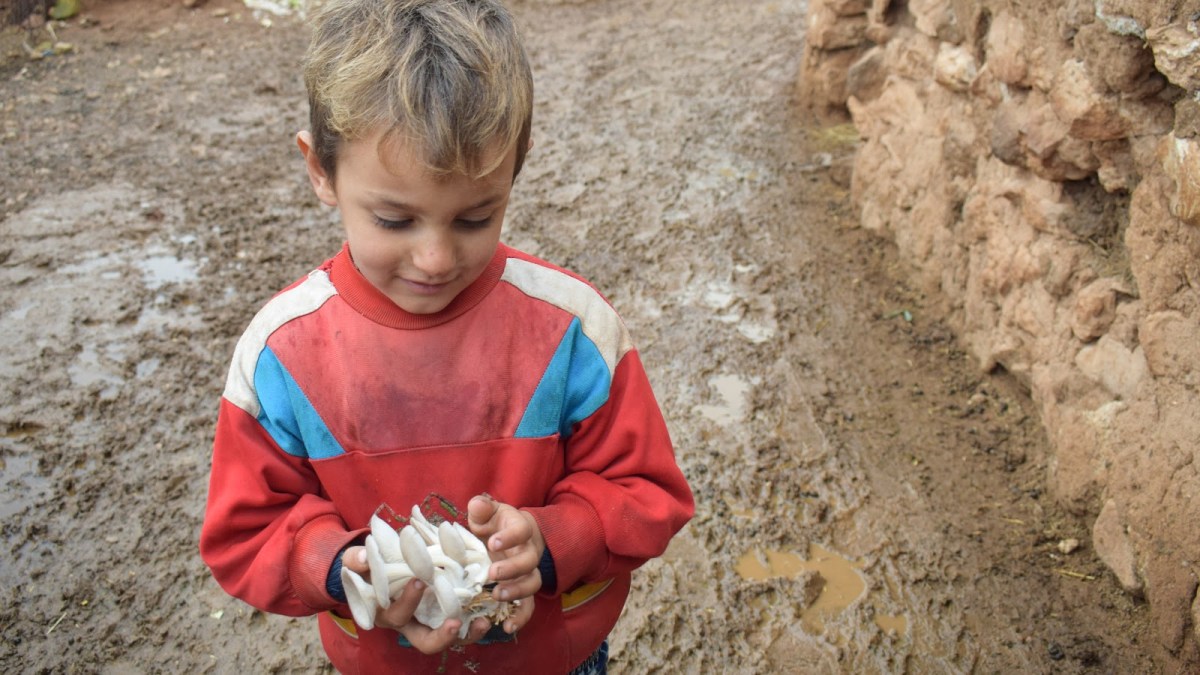The mushrooms that Amina grows stand out bright white against everything else in her life. They are a bright spot in her old, stone house damaged by war. They are a bright spot against the mud outside, against the doubts of her neighbors that she will be a successful grower, against the pain of the past.
When you invest in agriculture projects in Syria, you provide so much more than an income for growers.
Lives Scented by Roses
It’s the smell of roses that Amina’s mother-in-law remembers best, six years later. That and the sound of children’s laughter. “We woke up to the sound of rockets, and the screams of children and women from all over the village. It was a terrible day that forced us to leave our village and our house, which was full of life and full of the smell of roses and the children’s laughter.”
It’s sometimes the smallest details that stay with us after tragedy.
The day that war came to Amina’s village, in the countryside outside Aleppo, she fled with her children and her mother-in-law to somewhere safer. Her husband, his brothers, and all the men of the village stayed behind to protect their homes. It’s a powerful instinct—the need to protect the home of the ones you love most.
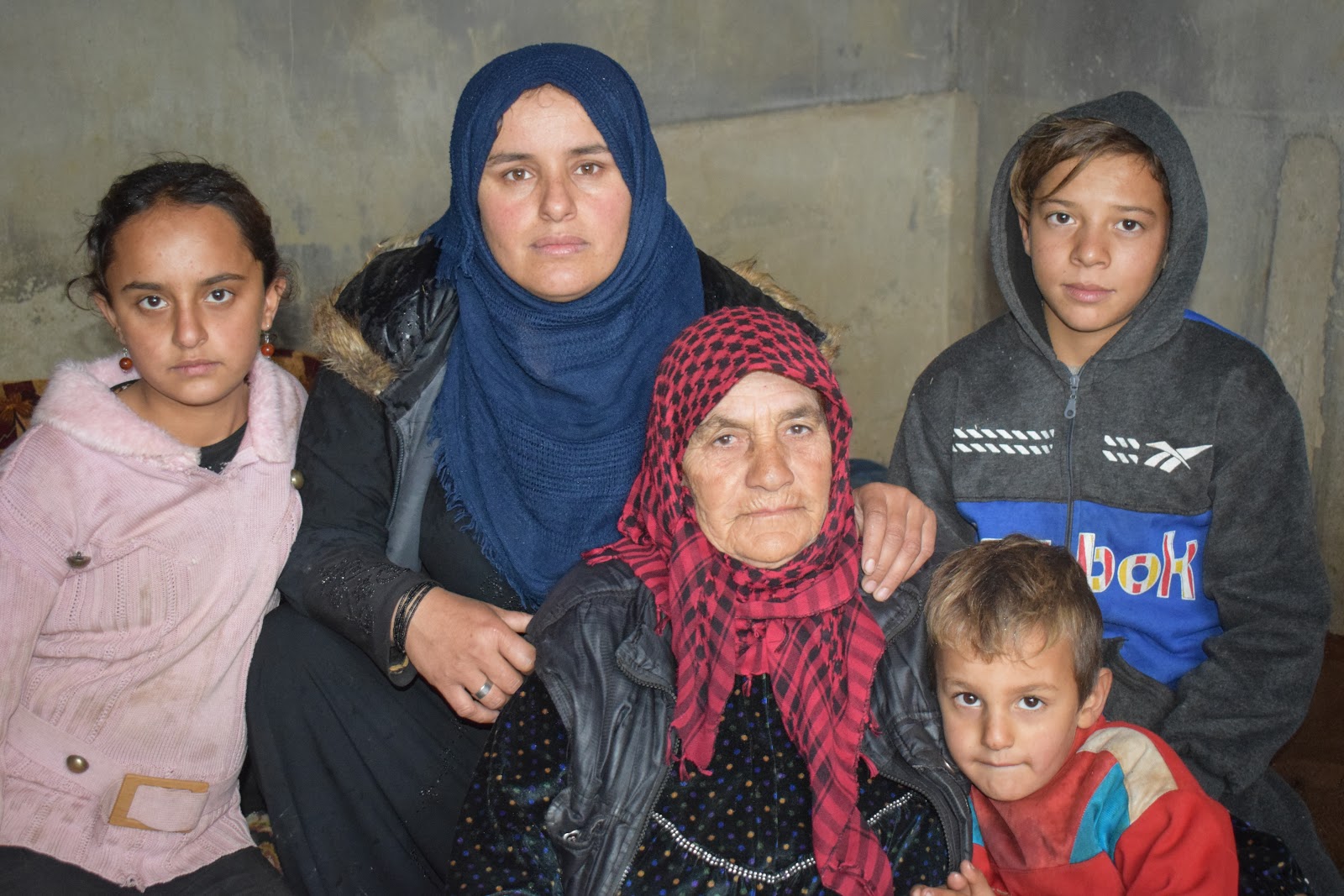
Amina lost her husband in the attack. Her mother-in-law lost every one of her sons. She only found the bodies of two of them—two more have been missing ever since. And despite the best efforts of the men in their family, their house was burned. The smell of roses was replaced with the acrid smell of a lifetime of effort lost to fire.
In a few days of war six years ago, Amina became responsible for her household. Without a husband, without a protector, without employable skills, Amina and her family sunk into poverty. It only took a few days to wipe out the love and hard work of generations. And Amina became desperate for a solution.
Leaping into the Unknown
When Amina was given the chance to participate in our mushroom-growing project, she was taking a big leap. Mushrooms were introduced to the Syrian diet fairly recently, and they’re certainly not known in rural areas where Amina lives. There, farmers are experts in growing wheat and beans, tomatoes and cucumbers. They know about tilling fields and irrigation. They don’t yet know about methods for growing mushrooms—sterilized growing medium, spores, and growing profitable crops inside the home.
Amina was so happy for the chance to try growing mushrooms! There just weren’t opportunities available to her in her village before this. She was so excited that she told the whole village—anyone who would listen—about the project. She talked about what she was learning, and what benefits she expected from the project.
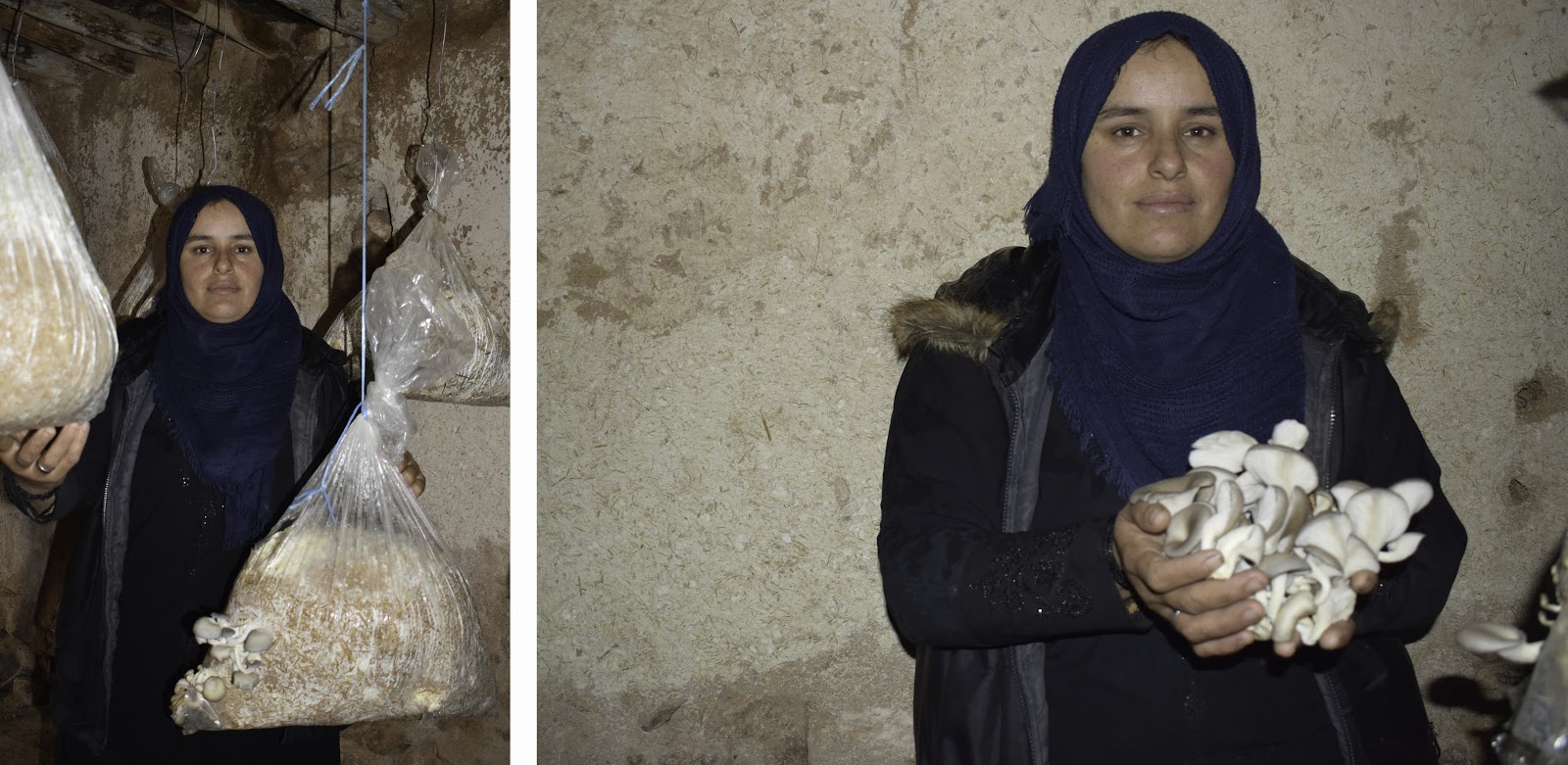
 She was met with skepticism. No, more than skepticism—she was met with straight-up negativity. Amina’s neighbors told her there was no way she would succeed at growing mushrooms, and she certainly wouldn’t reap any benefits from it.
She was met with skepticism. No, more than skepticism—she was met with straight-up negativity. Amina’s neighbors told her there was no way she would succeed at growing mushrooms, and she certainly wouldn’t reap any benefits from it.
Amina didn’t argue with her neighbors. Instead, she poured that energy into growing her crop. She carved out space in her home to hang inoculated bags. She checked on the growing bags regularly to make sure that none spoiled. And in time, Amina harvested and sold her crop of beautiful, white oyster mushrooms.
Amina faced everyone who sentenced her to failure with the evidence of her success.
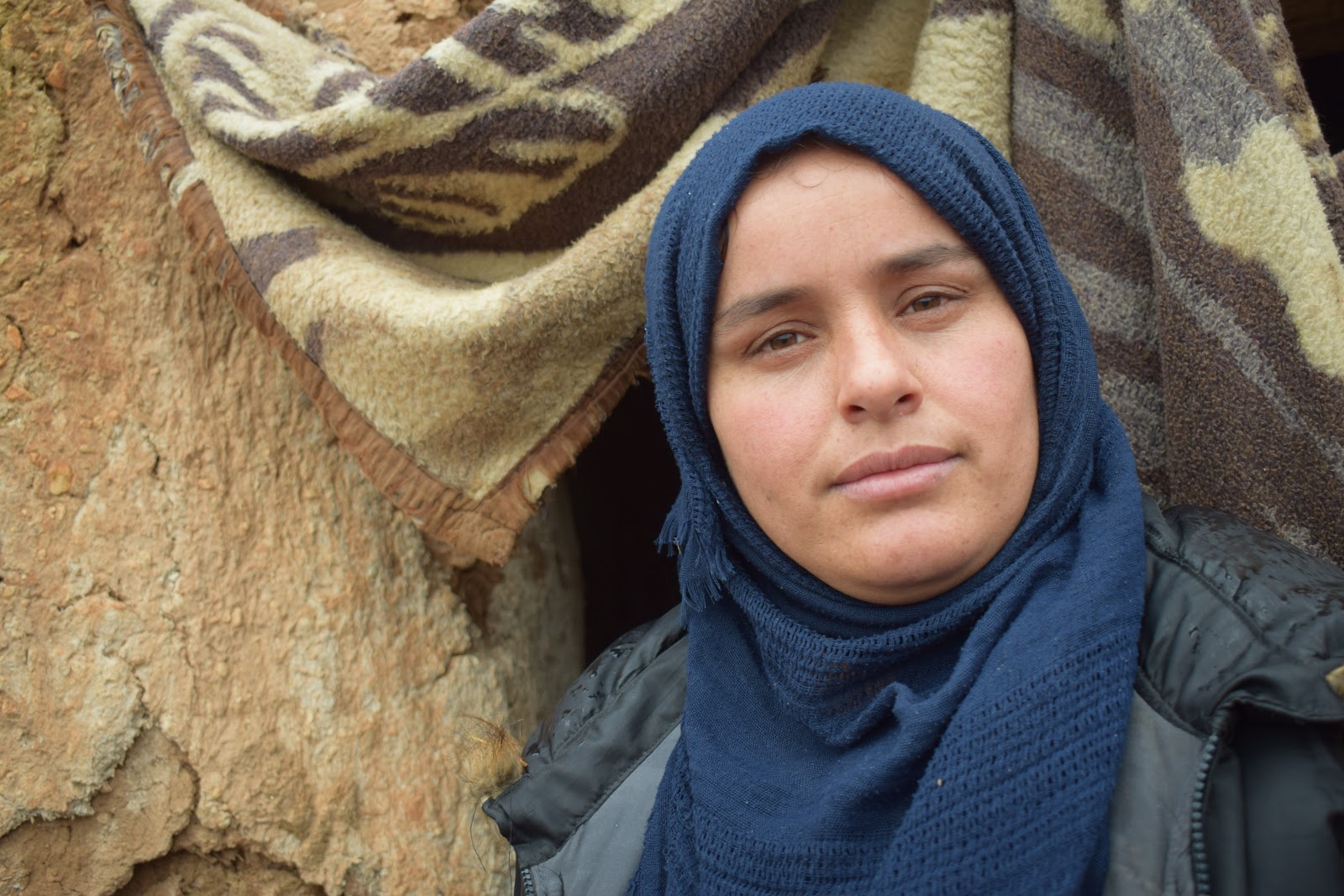
This is Amina. This is the woman who promised her children that she would make up for every minute they suffered and went without, through this chance to grow mushrooms. This is the face of a woman determined to undo the pain of the past and to remake home for her family.

